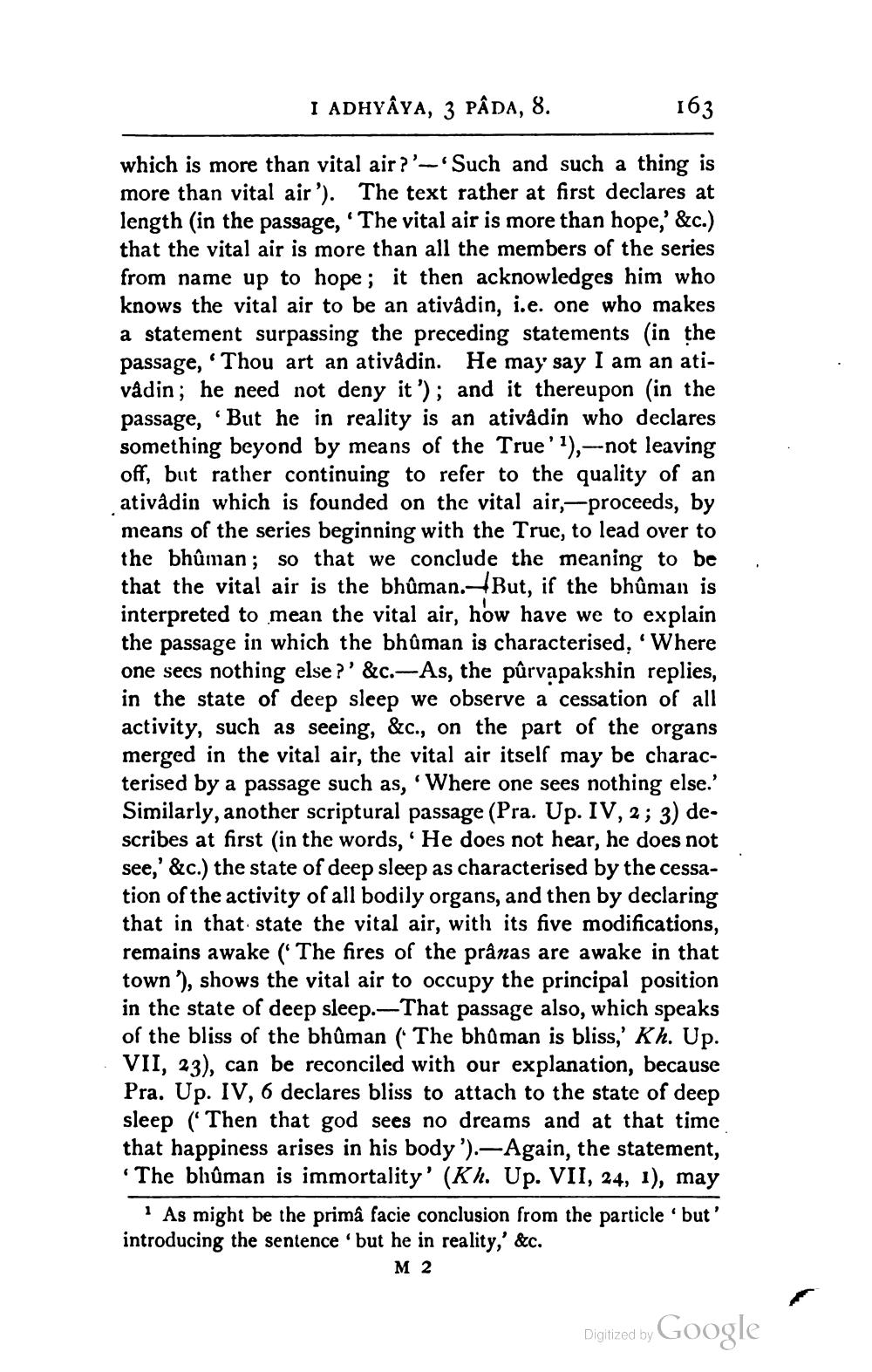________________
I ADHYAYA, 3 PÂDA, 8.
163
which is more than vital air?'— Such and such a thing is more than vital air '). The text rather at first declares at length (in the passage, ‘The vital air is more than hope,' &c.) that the vital air is more than all the members of the series from name up to hope; it then acknowledges him who knows the vital air to be an ativadin, i.e. one who makes a statement surpassing the preceding statements in the passage, 'Thou art an ativadin. He may say I am an ativådin; he need not deny it'); and it thereupon (in the passage, But he in reality is an ativadin who declares something beyond by means of the True'?),--not leaving off, but rather continuing to refer to the quality of an ativadin which is founded on the vital air,-proceeds, by means of the series beginning with the Truc, to lead over to the bhûman; so that we conclude the meaning to be that the vital air is the bhûman.But, if the bhûnan is interpreted to mean the vital air, how have we to explain the passage in which the bhûman is characterised, Where one sees nothing else?' &c.—As, the pûrvapakshin replies, in the state of deep sleep we observe a cessation of all activity, such as seeing, &c., on the part of the organs merged in the vital air, the vital air itself may be characterised by a passage such as, 'Where one sees nothing else.' Similarly, another scriptural passage (Pra. Up. IV, 2; 3) describes at first in the words, ' He does not hear, he does not see,' &c.) the state of deep sleep as characterised by the cessation of the activity of all bodily organs, and then by declaring that in that state the vital air, with its five modifications, remains awake ('The fires of the prânas are awake in that town ), shows the vital air to occupy the principal position in the state of deep sleep.-That passage also, which speaks of the bliss of the bhûman (The bhūman is bliss,' Kh. Up. VII, 23), can be reconciled with our explanation, because Pra. Up. IV, 6 declares bliss to attach to the state of deep sleep ( Then that god sees no dreams and at that time that happiness arises in his body').- Again, the statement, The bhûman is immortality' (Kh. Up. VII, 24, 1), may
As might be the primâ facie conclusion from the particle but' introducing the sentence 'but he in reality,' &c.
M
2
Digitized by Google




